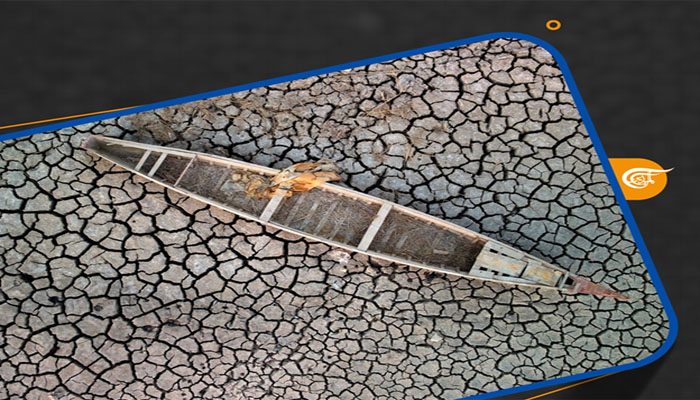
Afrasianet - Emad Al Hataba - Capitalism is not satisfied with everything it does to prevent countries from self-development, but also supports projects that impoverish countries in water, such as supporting Turkey in holding the Euphrates waters from Syria and Iraq.
In a new World Bank study, "The Hidden Wealth of Nations: Groundwater Economics in Times of Climate Change," the World Bank focuses on groundwater as a natural security that protects food security, reduces poverty, and promotes resilient economic growth.
We cannot deny much, if not most, of the facts contained in this report. Groundwater can reduce the economic losses caused by drought, especially in the agricultural sector, and improving groundwater use can preserve the environmental advantages of different geographical areas that can be destroyed by drought, diversion of riverbeds, construction of dams and other human activities that try to provide the quantities of water that humans need.
Statistics show that 49% of the world's domestic water comes from groundwater. While groundwater use in the Middle East and South Asia is 92%, it drops to 20% in sub-Saharan Africa.
The World Bank, as usual, holds the authorities and local people accountable. On the one hand, it accuses government support policies for the agriculture and green energy sectors that encourage citizens to extract groundwater using solar-powered pumps, with the aim of increasing their government-subsidized agricultural crops, and the report finds that citizens resort to the excessive use of groundwater, often without government licenses.
What is absent from the World Bank's reports on all topics, not just groundwater, is the role of the colonial external factor in all the crises that afflict the peoples of the world. In the Arab world, Iraq and Somalia are suffering from water stress, while Egypt, Sudan, Syria and Lebanon suffer from water scarcity.
Far from defining the difference between water stress and scarcity, it can only be noted that the aforementioned countries have suffered, and continue to suffer, from the scourge caused by colonialism, whether through direct occupation, destruction of infrastructure through economic sanctions and blockade, or plundering of the country's wealth through agreements of colonial plunder.
Capitalism is not satisfied with everything it does to prevent countries from self-development, but also deliberately supports projects that impoverish countries by water, such as supporting Turkey in withholding the Euphrates waters from Syria and Iraq, and supporting Ethiopia in withholding water from Sudan and Egypt.
Egypt's 2022 Human Development Report indicates that Egypt's per capita freshwater share will decline to 496 cubic meters by 2025, noting that the global water poverty line is 1,000 cubic meters per year per capita.
The report does not show that the equitable distribution of freshwater available globally gives a per capita human being a share of 7,000 cubic meters per year, but the reality is that a quarter of the world's population does not have access to fresh drinking water. So where does fresh water go?
"Look for capitalism." A 100% valid answer in every crisis in the world. Capitalist industries pollute surface and groundwater everywhere in the world. These industries, whether directly from colonial capital or from their local agents, have the same impact. A company like Shell, one of the world's most polluting companies, shouldn't stop at it, it can extend to other mining activities, such as gold mining.
In Mali, the Niger River is the source of life for 75% of the population, but gold-hunting activities and the use of hazardous substances, such as arsenic and mercury, in the process, have led to a drop in the river's level and a shortage of supplies of fisheries, which is one of the most important sources of food for the population.
In Iraq, figures indicate that drought and low water levels in the Tigris and Euphrates rivers have led to a decrease in areas planted with wheat and barley to 7 million dunums in 2022 compared to 12 million dunums in 2022.
In addition to all of the above, conditions are imposed on countries to obtain loans and grants. These conditions, although some are political, many of them are economic and determine the areas of use of funds. Colonialism, on the other hand, strains relations between neighboring states to prevent the possibility of joint projects that achieve self-sufficiency in economic fields and reduce the dependence of states on imports from capitalist centers.
If we are talking about the real wealth of nations, it is resistance, and not only military resistance, but economic, social and cultural resistance as well. Without resistance to the culture that the West is trying to spread, which is based on the concepts of consumption and scarcity, we will remain captive to the instruments of capitalist plunder in its various forms.

